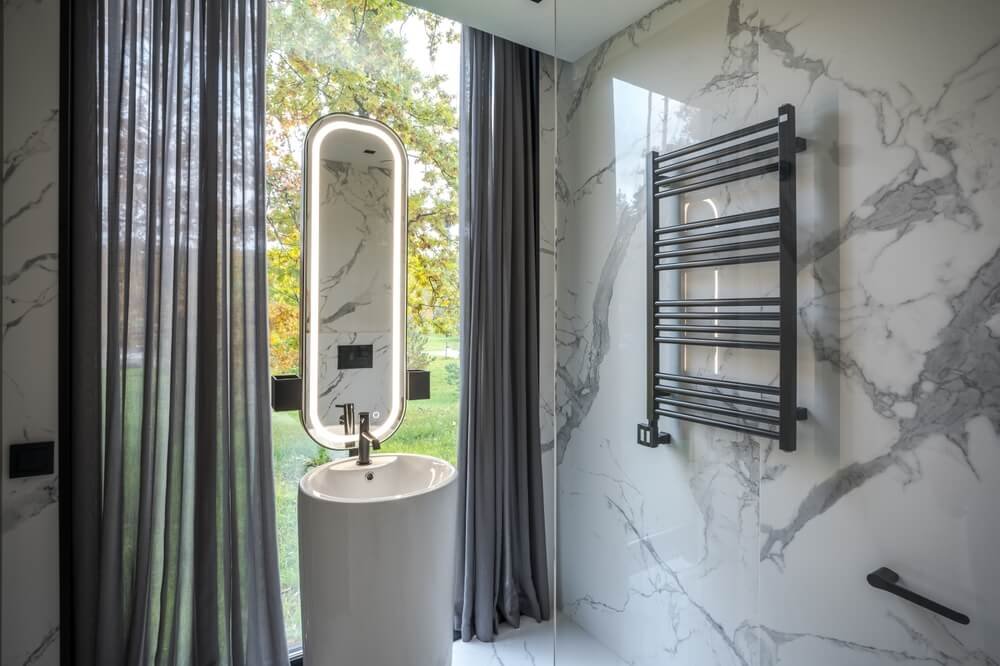In a world where efficiency and sustainability are becoming increasingly crucial, modular restrooms are emerging as a game-changing solution. These innovative structures are redefining what it means to build effective and eco-friendly bathroom facilities. Their ability to be assembled quickly allows for rapid deployment in a variety of settings. This agility is critical in meeting the immediate needs of both the public and private sectors Building Better Bathrooms.
Modular restroom buildings offer numerous advantages over traditional construction methods. They are designed flexibly, which means they can easily adapt to different spatial and design requirements. But what exactly makes them so transformative? Their integration into diverse environments demonstrates their versatility and effectiveness in improving infrastructure swiftly and sustainably.
Understanding Modular Restrooms
These are prefabricated units constructed in a controlled factory environment, then transported and assembled at their final location. This approach differs significantly from traditional bathroom construction, which requires building from scratch on-site. The prefabrication process ensures higher quality control, reduces waste, and allows faster deployment. These units are highly customizable, making them suitable for various uses, from public parks to large-scale events, efficiently providing reliable and hygienic facilities.
1. Quick Installation
One of the most significant benefits of modular restrooms is their rapid installation time. Since the majority of construction occurs off-site, the on-site assembly is incredibly fast. It provides a swift solution for businesses and public spaces that need facilities quickly, such as during events or renovations, without the long downtimes associated with traditional construction.
2. Cost-Effectiveness
Modular restrooms are often more cost-effective than their built-from-scratch counterparts. The controlled factory setting reduces waste and allows for precise budgeting, as all materials are pre-measured and utilized efficiently—furthermore, the reduced construction time on-site means lower labor costs and minimal disruption to existing operations.
Customization and Flexibility
Unlike standard bathrooms, modular restrooms offer extensive customization options to meet specific needs and preferences. Whether it’s adapting to different space sizes or including luxurious fixtures and fittings, these units can be tailored to suit any requirement.
1. Tailored Designs
Organizations can choose layouts and features that align with their specific aesthetic or functional needs. The flexibility of design is a significant draw, from family-friendly bathrooms with changing facilities to elegant restroom trailers suitable for high-end events.
2. Scalability
Modular restrooms can be easily scaled according to demand. Additional units can be seamlessly integrated into existing structures, making them ideal for growing facilities such as schools, campsites, or temporary event venues.
Durability and Quality
Despite their prefabricated nature, modular restrooms do not compromise quality or durability. These units are built to adhere to strict standards and are capable of withstanding harsh conditions just as well, if not better, than traditional bathrooms.
1. Robust Materials
Manufacturers use high-quality, durable materials that can endure the wear and tear of frequent use and various weather conditions. It makes modular restrooms suitable for both indoor and outdoor applications.
2. Compliance with Regulations
Modular restrooms are designed to comply with all relevant building codes and accessibility standards. This compliance is essential for ensuring that facilities are safe and usable for everyone, including those with disabilities.
Environmental Impact
The construction industry is known for its significant environmental footprint, but modular restrooms offer a more sustainable alternative.
1. Reduced Waste
The production process for modular units is tightly controlled, significantly reducing waste. Excess materials can be recycled or reused rather than discarded, as is often the case on traditional construction sites.
2. Energy Efficiency
These units can be equipped with energy-efficient fixtures such as LED lighting, low-flow toilets, and waterless urinals, enhancing their environmental friendliness.
Challenges and Considerations
While modular restrooms offer many benefits, there are challenges to consider when implementing them.
1. Perception Issues
There may be a perception that modular means lower quality, which is not the case. Education and firsthand experience can help change this perception by showcasing the high standards and capabilities of modern modular bathrooms.
2. Initial Investment
The upfront cost for modular restrooms can be higher than purchasing standard portable toilets, particularly when custom features are included. However, the long-term savings in maintenance and versatility often offset these initial expenses.
As we continue to seek more sustainable, efficient, and flexible building solutions, modular restroom buildings are set to play a pivotal role. They not only meet the diverse needs of modern society but also offer a practical approach to challenges in construction and facility management. With their ability to combine quality, customization, and cost-effectiveness, modular restrooms are indeed changing the game in building better bathrooms. This shift not only promises to enhance how we construct and use restroom facilities but also aligns with broader environmental and economic goals, paving the way for a smarter, more sustainable future.

